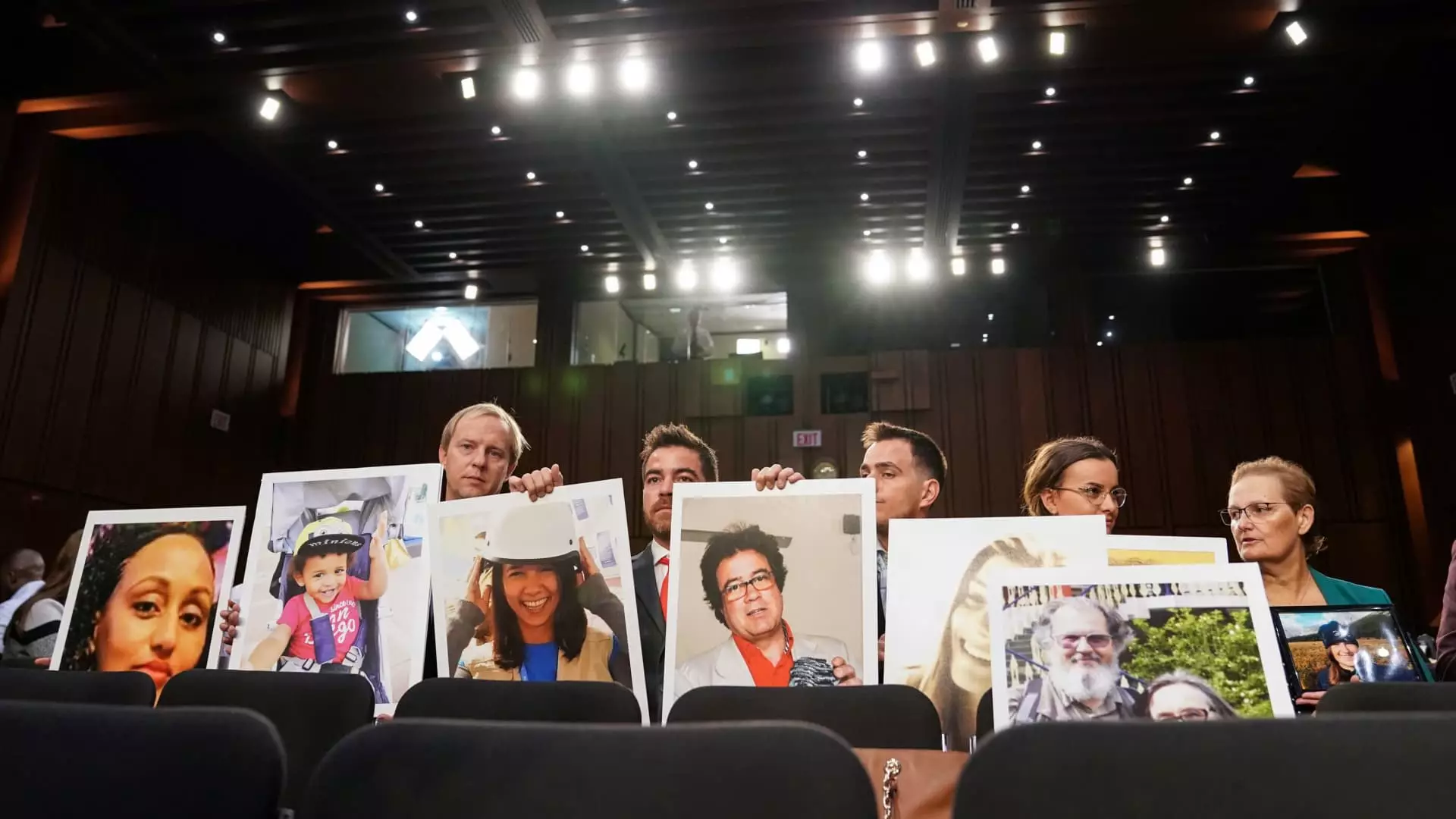The recent non-prosecution agreement between the U.S. Justice Department and Boeing, a corporate titan, exemplifies a troubling dynamic where accountability seems painfully negotiable. This deal allows Boeing to sidestep prosecution for two of its 737 Max aircraft crashes that led to the tragic loss of 346 lives. It is reminiscent of a half-hearted concession in which profit outweighs principles, overshadowing the cries for justice from the victims’ families. With a staggering $1.1 billion payout that includes penalties and investment in safety measures, it is critical to question whether this financial settlement can sufficiently substitute for a day in court — particularly when lives were lost.
In the political landscape, where corporate interests continually intersect with government oversight, this arrangement raises alarms. Victims’ families have vocalized concerns that the agreement sets an unprecedented and troubling precedent, one that implies corporate negligence can be easily absolved with a monetary remedy. The families deserve a fair trial, a vehicle through which the nuances of this human tragedy can be explored and accountability placed squarely on the shoulders of those responsible.
A Flawed System: The Favoritism at Play
As a center-right liberal, I cannot help but reflect critically on the implications this deal has for the justice system. If a corporation as influential as Boeing can secure a pathway to freedom from prosecution, what does that say about the integrity of our legal framework? This case feels like a capitulation to the so-called ‘too big to fail’ mantra, where larger entities are shielded from the ramifications of their actions, allowing them to emerge relatively unscathed while individuals suffer the consequences.
Consider the backdrop: Boeing had previously reached a settlement in 2021 that effectively imprisoned them under a three-year moratorium from prosecution. When that agreement came under fire for its inadequacies — particularly in the wake of continued incidents related to the 737 Max — the idea of a retrial should have been a no-brainer. But instead, we find ourselves in a scenario that raises eyebrows; Boeing agrees to pay and invest over a billion dollars, yet the legal repercussions for its past indiscretions dissolve like mist in sunlight. For the families still seeking justice, this arrangement feels like a betrayal, a “sweetheart deal” that doesn’t hold the corporation accountable in the way that a public trial could.
Rethinking Accountability: The Demand for Justice
What is particularly troubling about this arrangement is the Justice Department’s decision to equate this financial penalty with accountability. Community trust depends on the understanding that laws apply equally, regardless of the clout one wields in corporate boardrooms. This incident has raised critical questions about integrity in corporate governance and the ethics surrounding regulatory oversight. Simply put, Boeing’s actions suggest a culture where profit margins trump safety and integrity, a reality that can lead to catastrophic consequences.
The D.O.J. claims that the agreement serves the public interest. Yet, for the families of the victims, the public interest appears to be secondary. They have expressed outrage that a financial settlement could replace a full accountability framework, highlighting a significant disconnect between corporate actions and the expectations of justice.
Claiming to prioritize public interest while favoring a corporate giant raises fundamental ethical questions about who really benefits from these agreements. With Boeing already under scrutiny, allowing it to evade trial sets a dangerous precedent for other corporations, sending a message that financial power can mute the voices of tragedy.
The Future of Corporate Responsibility: A Call for Change
This deal is more than just about Boeing; it raises broader questions about corporate governance and regulatory fairness in America. Should the survival of a military contractor take precedence over the lives that were lost due to possible negligence? The hesitance to bring corporate executives to trial complicates the narrative of accountability, leaving many wondering if we are willing to tolerate systemic favoritism in exchange for maintaining corporate muscle.
As discussions surrounding corporate ethics evolve, the price of safety cannot merely be calculated by the amount of money spent or invested. True accountability must involve trials, transparency, and real consequences for those at the helm when tragic pathologies occur. Let us hope this deal opens the floor to important conversations about the future of corporate accountability and ethical governance in America. The stakes are higher than ever, and the lives lost cannot be forgotten in the pursuit of profit.

